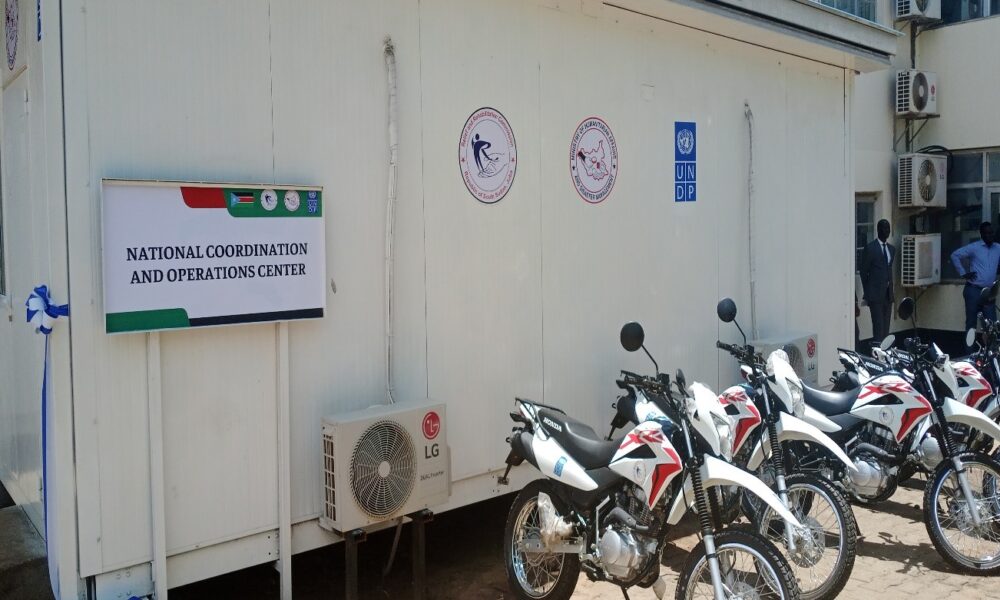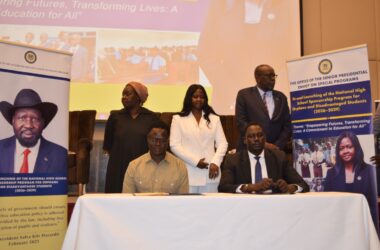By William Madouk
Ministry of Humanitarian Affairs, in collaboration with the Relief and Rehabilitation Commission (RRC), on Monday, launched first-ever National Coordination and Operation Center (NCOC).
The NCOC is meant for an integrated information management system, early warning and risk analysis, coordinated planning and responses, durable solutions, and recovery action.
In her speech, the Vice President of Gender Cluster, Rebecca Nyandeng De Mabior, said the center is a game changer in disaster management.
“The center is just the beginning, and we shall expand it to reach more partners, remote areas, and vulnerable populations. It is time to work together as a cohesive team, and I now declare the NCOC open,” said Nyandeng.
“I am confident that this center will enable us to respond more effectively and efficiently to emergencies and disasters, and I am proud to be part of this historic moment,” she added.
She hinted that a government-led information management system and early warning mechanisms are vital for lifesaving.
“Today, we have a centralized facility for information management and risk analysis, and we can now issue early warnings to our citizens and coordinate emergency and crisis response and recovery actions,” VP Nyandeng noted.
The NCOC center was established with support from the United Nations Development Programme (UNDP).
The bikes are expected to be given to RRC officers at border states in the northern part of South Sudan—for instance, in Northern and Western Bahr el Ghazal and Malakal, just to mention a few.
Besides, the Minister of Humanitarian Affairs and Disaster Management, Albino Akol, stated that his docket and RRC have been searching to modernize ways these challenges could be addressed.
“This early warning program is the solution to the disasters that are facing us and is a step to reduce the risk that is associated with the disasters,” said Akol.
“Thinking in that line, the launch of this center is one step toward that objective, because this center will be addressing and collecting information that will help us to take a discussion of time,” he added.
Mr. Akol said that with the gathered facts, his docket would be able to analyze, develop, and chart a rescue or recovery plan in a timely manner.
Also, Gatwech Peter Kulang, the boss of the Relief and Rehabilitation Commission (RRC), said the center will tackle an escalating crisis marked by conflict, climate change, displacement, and economic challenges in the country.
“The center we are launching here today is for our work as humanitarian facilitators. Effective humanitarian and disaster response require careful coordination at all levels and with all stakeholders,” said Kulang.
He added that over the past five years, disasters such as floods and drought have disrupted agriculture and exacerbated food security, leaving approximately one million people staring at hunger in the face.
According to the 2023 INFORM Risk Index, South Sudan ranks second most vulnerable to natural hazards globally and among the top five countries most vulnerable to the impact of climate change.
In November 2023, the Ministry of Humanitarian Affairs and Disaster Management launched the South Sudan Early Warning for All Initiative, a system to mitigate the impact of natural disasters in the country.




